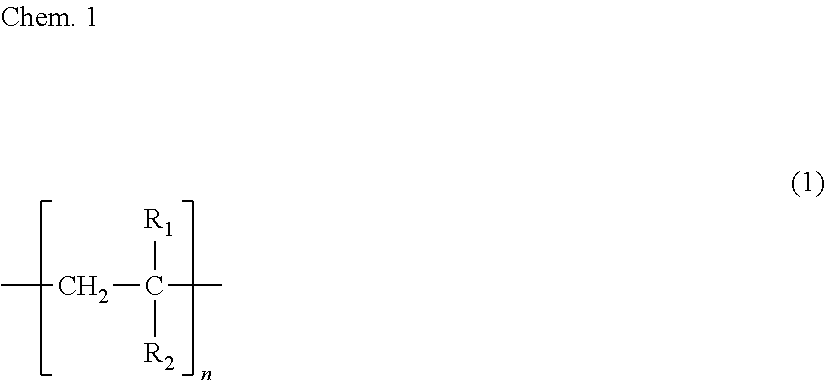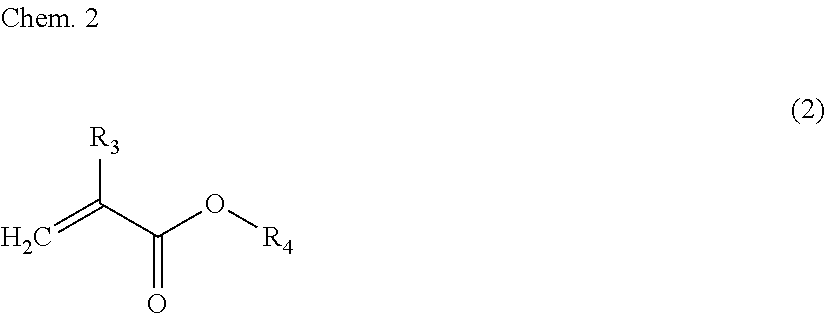Polyester binder fibers
a technology of polymer fibers and binder fibers, applied in the field of polymer binder fibers, can solve the problems of water dispersibility degradation of obtained fibers, and achieve the effects of improving the spinnability of polymer blends, improving fiber structure, and small fineness
- Summary
- Abstract
- Description
- Claims
- Application Information
AI Technical Summary
Benefits of technology
Problems solved by technology
Method used
Image
Examples
examples
[0068]Hereinafter, the present invention will be demonstrated by way of some examples that are presented only for the sake of illustration, which are not to be construed as limiting the scope of the present invention. It should be noted that chip viscosity (intrinsic viscosity), single fiber fineness, spinnability, paper strength, paper thickness, and other properties according to the present invention were measured and / or evaluated in the following manners.
[0069]Chip Viscosity (Intrinsic Viscosity)
[0070]The chip viscosity (intrinsic viscosity) (dL / g) of a sample was measured using an Ubbelohde viscometer (“HRK-3”, produced by Hayashi Seisakusho Co.) corresponding to JIS K 7367-1. The solvent used for measurement was a mixed solvent of phenol / tetrachloroethane (volume ratio of 1 / 1) at 30° C.
[0071]Cross-Sectional Shape
[0072]After spinning to obtain a wound fiber, the fiber was cut using a razor in the perpendicular direction to the longitudinal direction of the fiber. The cross-secti...
PUM
| Property | Measurement | Unit |
|---|---|---|
| crystallization temperature | aaaaa | aaaaa |
| crystallization temperature | aaaaa | aaaaa |
| length | aaaaa | aaaaa |
Abstract
Description
Claims
Application Information
 Login to View More
Login to View More - R&D
- Intellectual Property
- Life Sciences
- Materials
- Tech Scout
- Unparalleled Data Quality
- Higher Quality Content
- 60% Fewer Hallucinations
Browse by: Latest US Patents, China's latest patents, Technical Efficacy Thesaurus, Application Domain, Technology Topic, Popular Technical Reports.
© 2025 PatSnap. All rights reserved.Legal|Privacy policy|Modern Slavery Act Transparency Statement|Sitemap|About US| Contact US: help@patsnap.com



